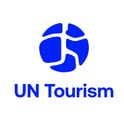Bogotá Joins The UNWTO Network of Sustainable Tourism Observatories
UNWTO has welcomed Bogotá’s Tourism Observatory into its International Network of Sustainable Observatories (INSTO).
Bogotá´s Tourism Observatory has longstanding and extensive monitoring experience and has been further strengthened by the City Council as an instrument of public management and mechanism to consolidate, systematize, analyze and research information of the tourism sector. Becoming a member of INSTO will help Bogotá in managing tourism development in a responsible and sustainable manner and allow it to better deal with post-pandemic recovery.
UNWTO Secretary-General Zurab Pololikashvili said: “The INSTO network is a platform where we welcome Observatories that are committed to basing the sustainable development of tourism on evidence, participatory approaches and transparency. We are very pleased to welcome Bogotá into the Network as the latest member.”
Inclusive future for Bogotá´s tourism
Bogotá is home to a wide variety of tourist resources and attractions and has an infrastructure that allows for the development of different high-quality tourism products. As the most popular Colombian destination in terms of tourist numbers, arrivals in 2021 reached almost 6 million, with growth of 49.8% in relation to 2020, contributing US$5.795 billion corresponding to 2.4% of the total GDP of the city, which meant an annual increase of 38.2% between 2020 and 2021. Within the Sustainable Tourism Policy of Colombia 2022, the vision of strengthening the reputation and recognition of Colombia as a sustainable tourism destination is clearly outlined.
The Vice Minister of Tourism Ricardo Galindo Bueno assured that "for the Vice Ministry of Tourism it is great news that the Bogotá’s Tourism Observatory is part of the UNWTO INSTO network, because a tool of these characteristics and qualities, allows public policies of the sector in the district to continue to be nourished by objective measurements that improve decision making".
Director of the District Institute of Tourism (IDT), Karol Fajardo Mariño explained: "The adhesion of the Bogotá’s Tourism Observatory to the UNWTO INSTO Network will allow us to share with other tourist destinations experiences and development and measurement strategies based on exemplary sustainability, in an effort to respond to the needs of quality tourism information demanded by the sector.”
The Bogotá’s Tourism Observatory will monitor 11 key areas for tourism sustainability: tourism seasonality, employment, economic benefits of the destination, energy management, water management, wastewater management, solid waste management, climate action, accessibility, local satisfaction and governance, which will facilitate decision-making and the processes of formulating public policies and strengthening the sustainable development of our city.
RELATED LINKS
- UNWTO International Network of Sustainable Tourism Observatories
- Bogotá’s Tourism Observatory
- Bogotá´s Tourism Observatory on the INSTO Website
About UN Tourism
The World Tourism Organization (UN Tourism) is the United Nations agency responsible for the promotion of responsible, sustainable and universally accessible tourism.
As the leading international organization in the field of tourism, UN Tourism promotes tourism as a driver of economic growth, inclusive development and environmental sustainability and offers leadership and support to the sector in advancing knowledge and tourism policies worldwide.
Our Priorities
Mainstreaming tourism in the global agenda: Advocating the value of tourism as a driver of socio-economic growth and development, its inclusion as a priority in national and international policies and the need to create a level playing field for the sector to develop and prosper.
Promoting sustainable tourism development: Supporting sustainable tourism policies and practices: policies which make optimal use of environmental resources, respect the socio-cultural authenticity of host communities and provide socio-economic benefits for all.
Fostering knowledge, education and capacity building: Supporting countries to assess and address their needs in education and training, as well as providing networks for knowledge creation and exchange.
Improving tourism competitiveness: Improving UN Tourism Members' competitiveness through knowledge creation and exchange, human resources development and the promotion of excellence in areas such as policy planning, statistics and market trends, sustainable tourism development, marketing and promotion, product development and risk and crisis management.
Advancing tourism's contribution to poverty reduction and development: Maximizing the contribution of tourism to poverty reduction and achieving the SDGs by making tourism work as a tool for development and promoting the inclusion of tourism in the development agenda.
Building partnerships: Engaging with the private sector, regional and local tourism organizations, academia and research institutions, civil society and the UN system to build a more sustainable, responsible and competitive tourism sector.
Our Structure
Members: An intergovernmental organization, UN Tourism has 160 Member States, 6 Associate Members, 2 Observers and over 500 Affiliate Members.
Organs: The General Assembly is the supreme organ of the Organization. The Executive Council take all measures, in consultation with the Secretary-General, for the implementation of the decisions and recommendations of the General Assembly and reports to the Assembly.
Secretariat: UN Tourism headquarters are based in Madrid, Spain. The Secretariat is led by the Secretary-General and organized into departments covering issues such as sustainability, education, tourism trends and marketing, sustainable development, statistics and the Tourism Satellite Account (TSA), destination management, ethics and risk and crisis management. The Technical Cooperation and Silk Road Department carries out development projects in over 100 countries worldwide, while the Regional Departments for Africa, the Americas, Asia and the Pacific, Europe and the Middle East serve as the link between UN Tourism and its 160 Member States. The Affiliate Members Department represents UN Tourism's 500 plus Affiliate members.
UN Tourism Communications Department
+34 91 567 8100
UN Tourism
